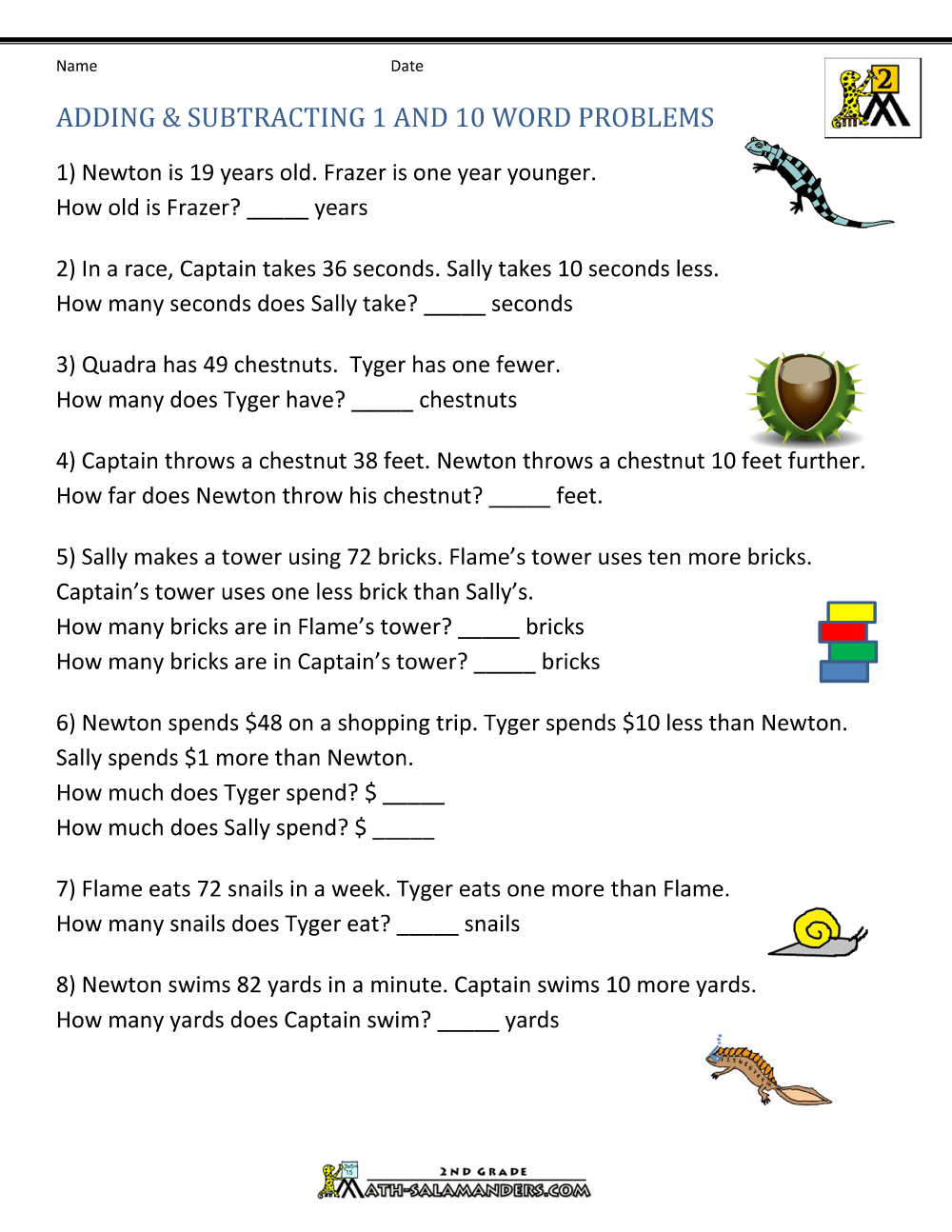The Order Of Addition, Subtraction, Multiplication
The answer of a subtraction problem is called the difference. When doing a subtraction problem, it's important to be able to properly label and...Question Video: Checking the Answer to a Subtraction Problem by Using Addition Mathematics • 2nd Grade There are 58 trees in the street. 14 trees are being cut down. How many trees will be left in the street? Hint: After you subtract, check your answer by adding. 02:48. Video Transcript. There are 58 trees in the street.They match — 9 and 9. Our answer was correct. Let's try using addition to check the answer to another subtraction problem: 54 - 21 = 33. Let's set up our addition problem. First write the answer to the subtraction problem, 33. Then add back the number that was subtracted, 21. Now it's time to add. 33 + 21 = 54.system model is evaluated against a corpus of over 1500 subtraction problems done by 10-year olds and is shown to account for about two-thirds of the (nonnumber fact) errors. It also provides an alternative, simpler interpretation of the subtraction.errors analysed by Brown and Burton (1978). Some implications for teaching are discussed.Mira ejemplos de the answer to a subtraction problem is called the. Descubre oraciones que usan the answer to a subtraction problem is called the en la vida real.
Checking the Answer to a Subtraction Problem by Using Addition
There is no other way to say (than "answer"). The result in multiplication is called the product not sum. Back to the question. The result in addition is called sum; in multiplication, product; and in division, quotient. In subtraction the result is called difference. I bet you should always stay awake in class especially in math class becauseThe answer to a subtraction problem can easily be checked using addition. For example, 37 - 25 = 12. To check this answer, add the subtrahend 25 and the difference 12. If your subtraction was...Any subtraction problem can be transformed to an addition problem and vice-versa. Subtracting 0 from any number gives the number itself as the difference. When 1 is subtracted from any number, the difference equals the predecessor of the number.Stefanie Timmermann/E+/Getty Images. The answer to a subtraction problem is called the difference. The value being subtracted is called the subtrahend, and the value from which the subtrahend is being subtracted is called the minuend. For example, in the subtraction problem 5 - 3 = 2, 5 is the minuend, 3 is the subtrahend and 2 is the difference.

Addition and Subtraction: Subtracting Two- and Three-Digit
What Is the Answer to a Subtraction?. Part of the series: Mathematics: Basic Subtraction. The answer to a subtraction problem can be found using a very speci...your answer on the line provided. A. a number close to the exact number C. two operations that can undo each other, such as addition and subtraction ÙD. The operation of taking away something E. the answer to a subtraction problem 1. subtraction _____ 2. difference _____ 3. estimate _____ 4. inverse operations _____ Powered by Cognero Page 1Thinking Outside the Algorithm. Above and beyond the traditional algorithmic approaches to subtracting is the development of subtraction strategies that allow children to explore subtraction rather than be subject to a grueling procedure that, if they don't fully understand, comes to haunt them when they want to find the answer to a subtraction problem.According to the study unit, the subtrahend is defined as A. the first number. B. the name of the subtraction symbol. C. the number being subtracted. D. the answer to a subtraction problem.The answer in a subtraction problem is called the difference. Actually, you probably should remember that the answer to a subtraction problem is called the difference.
the answer to a subtraction problem is named the&rut=9b9af94224fd0186ba1a041b2f27665587f83733ea8d6c2aa4504b838e788ef3
¿Quieres aprender inglés?
¡Aprende inglés de gratis!
inglés.com Premium
¿Ya lo probaste? inglés.com Premium incluye:
Hojas de repasoSin anunciosAprende sin conexiónGuías de conversaciónAprende más rápidoApoya inglés.comPruébalo por 7 días totalmente free of charge56 best images about jaedh-maths-fraction on Pinterest ...

Subtraction Word Problems 2nd Grade

Writing Subtraction Sentences Worksheets | Have Fun Teaching

Checking Subtraction with Addition - Math Foundations

Subtraction Timed Math Drills 50 Problems (Plain) by ...

12 Best Images of Time Management Activity Worksheets ...

Adding And Subtracting Decimals Worksheets With Answer Key ...

Integer word problems with addition & subtraction - YouTube

Fractions And Properties Of Addition Calculator Worksheets ...

️ Solving story problems with algebra. The trouble with ...

These worksheets provide instructive examples as well as ...

Subtraction Word Problems Worksheets

Simple Addition Worksheets For Free Download. Simple ...

Word Problems within 10 Pet Shop Theme | Word problems ...

Printable Addition and Subtraction Worksheets

Common Core Worksheets Adding And Subtracting Decimals ...

Example Of Problem Solving In Math Addition

4 Digit Addition Without Regrouping Worksheets

9 Tips and Tricks for Teaching Word Problems | Math word ...

Kindergarten Addition and Subtraction Worksheets - Name ...

Addition And Subtraction Worksheets To Educations ...

0 comments:
Post a Comment